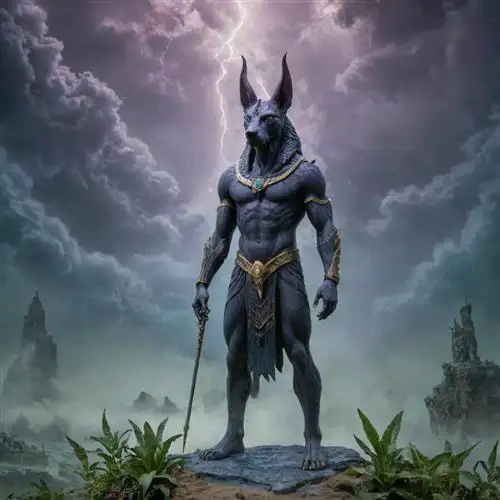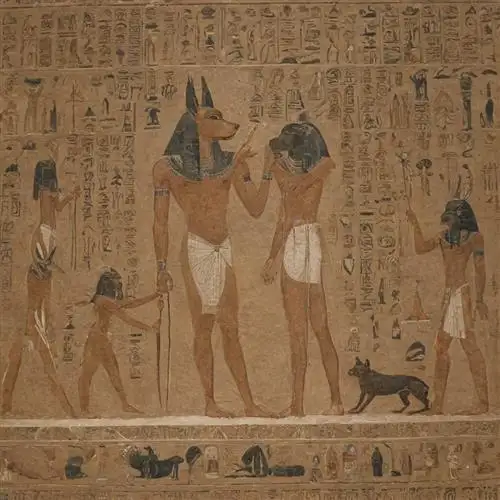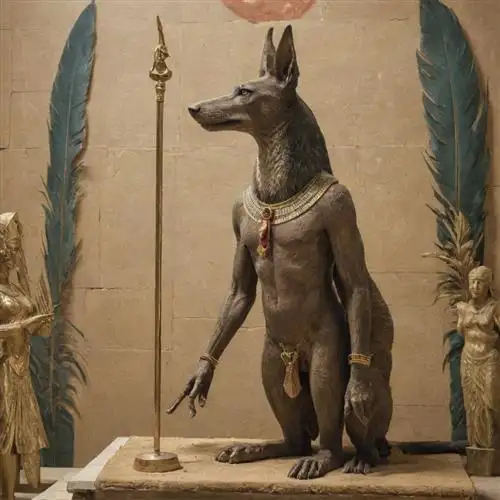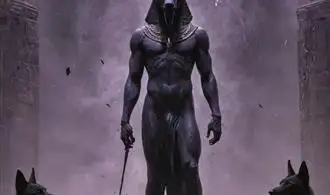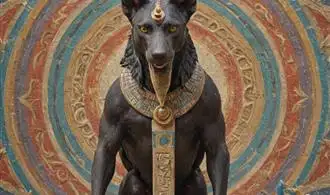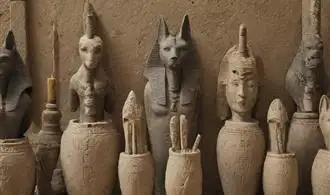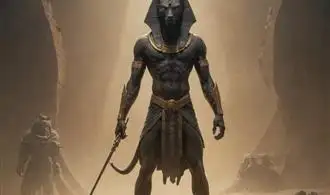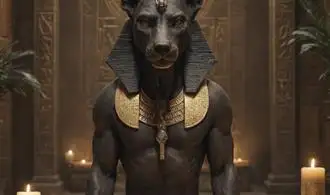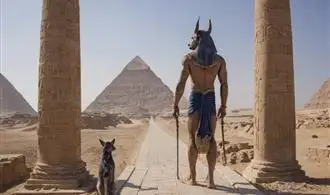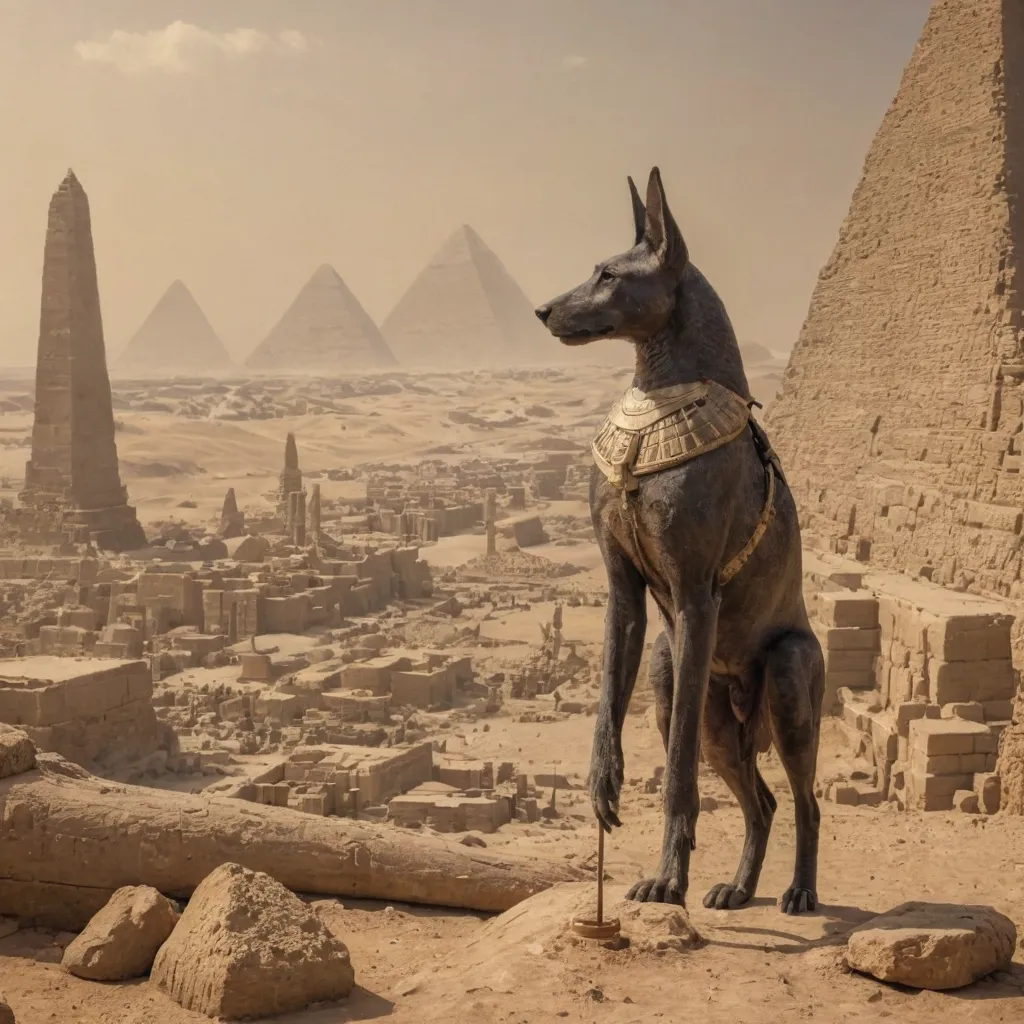
Anubis The Guardian of the Dead
Anubis, the jackal-headed Egyptian deity, has long been revered as the guardian of the dead. As a central figure in ancient Egyptian mythology, Anubis played a pivotal role in the journey of the soul into the afterlife. His profound symbolism and significance continue to captivate those interested in the rich tapestry of Egyptian culture and belief systems.
One of the primary responsibilities of Anubis was to oversee the process of mummification, ensuring the preservation of the deceased's physical form. This intricate ritual was believed to be essential for the soul's successful transition into the afterlife. Anubis would carefully guide the embalmers, ensuring the body was prepared with the utmost care and attention to detail.
Beyond his role in mummification, Anubis was also responsible for leading the deceased through the underworld and presiding over the weighing of the heart ceremony. This pivotal moment in the afterlife determined the individual's worthiness to enter the realm of the dead. Anubis would carefully place the deceased's heart on one side of a scale, while the feather of truth, representing justice and balance, was placed on the other. If the heart was found to be pure and free of sin, the individual was granted passage to the afterlife.
Interestingly, Anubis was often depicted in a dual role, both as a protector and a judge of the dead. His presence was believed to offer comfort and guidance to the deceased, while also holding them accountable for their actions during life. This duality emphasized the importance of living a virtuous life and the consequences that came with failing to do so.
Beyond his role in the afterlife, Anubis was also associated with other important aspects of ancient Egyptian culture. He was believed to have the power to heal the sick and was often invoked in medical rituals. Additionally, Anubis was seen as a guardian of the desert, protecting those who ventured into the vast, unforgiving landscapes.
The Symbolic Significance of Anubis Embalming Osiris
The Symbolic Significance of Anubis Embalming Osiris is a profound and intricate aspect of ancient Egyptian mythology. Anubis, the jackal-headed deity, was revered as the god of embalming and the protector of the dead. His role in the mummification of Osiris, the god of the underworld, holds immense symbolic significance that sheds light on the ancient Egyptians' beliefs and rituals surrounding death and the afterlife.
Anubis's involvement in the embalming of Osiris represents the critical transition from the physical realm to the spiritual realm. As the body of Osiris was prepared for eternal rest, Anubis ensured the proper preservation and protection of the deceased, guiding the soul through the complex process of transformation. This act symbolized the importance of honoring the dead and ensuring their safe passage to the afterlife, a fundamental belief in ancient Egyptian culture.
The embalming process carried out by Anubis was not merely a physical act but a sacred ritual imbued with deep spiritual meaning. Anubis, with his keen senses and expertise in the art of mummification, was believed to possess the knowledge and abilities necessary to prepare the body for its eternal journey. By meticulously attending to the details of embalming, Anubis ensured the preservation of the physical form, allowing the soul to transition seamlessly to the realm of the dead.
Moreover, Anubis's presence during the embalming of Osiris symbolized the importance of the deceased's identity and individuality. The jackal-headed god was responsible for weighing the heart of the deceased against the feather of truth, ensuring the individual's worthiness to enter the afterlife. This ritual, known as the "Weighing of the Heart," was a crucial step in the Egyptian concept of the afterlife, and Anubis's role in this process further solidified his significance as a gatekeeper and guardian of the dead.
The symbolic significance of Anubis embalming Osiris extends beyond the individual level, encompassing broader themes of transformation, regeneration, and the cyclical nature of life and death. Osiris, as the god of the underworld, represented the cycle of death and rebirth, and Anubis's role in preserving his physical form was integral to this process. By ensuring the proper care and preparation of the deceased, Anubis facilitated the transition from the earthly realm to the afterlife, allowing for the possibility of resurrection and eternal life.
Anubis and the Weighing of the Heart Ceremony
The Weighing of the Heart Ceremony was a pivotal ritual in ancient Egyptian culture, and Anubis played a central role in this sacred process. As the jackal-headed god of the dead, Anubis was responsible for guiding the deceased through the afterlife and ensuring the successful transition of the soul.
At the heart of the Weighing of the Heart Ceremony was the belief that the deceased's heart would be weighed against the feather of Ma'at, the goddess of truth, justice, and cosmic order. This process was a critical evaluation of the individual's moral character and actions during their lifetime. If the heart was found to be lighter than the feather, it signified a life well-lived, and the individual would be granted passage to the afterlife. Conversely, if the heart was heavier, it meant the individual had committed sins or transgressions, and their soul would be devoured by the devourer, a fearsome creature with the head of a crocodile, the body of a lion, and the hindquarters of a hippopotamus.
Anubis played a pivotal role in this ceremony, as he was responsible for overseeing the weighing process. He would carefully place the heart of the deceased on one side of the scale, while the feather of Ma'at was placed on the other. Anubis would then observe the delicate balance, ensuring the judgment was fair and impartial. His presence was a reassurance to the deceased, as he was seen as a guide and protector who would ensure their safe passage to the afterlife.
The Enduring Legacy of Anubis in Egyptian Mythology
The Enduring Legacy of Anubis in Egyptian Mythology is a captivating exploration of one of the most iconic and influential deities in ancient Egyptian culture. Anubis, the jackal-headed god, has long been revered for his profound role in the afterlife and his intricate connections to the rituals and beliefs that shaped the spiritual landscape of the ancient Nile civilization.
At the heart of Anubis' significance lies his role as the guardian of the dead, the embalmer, and the psychopomp – the guide who leads the souls of the deceased into the afterlife. This multifaceted role imbued Anubis with a profound sense of power and responsibility, making him a central figure in the Egyptian pantheon. The Secrets of the Experts on Anubis and the Afterlife delve deeper into the intricate rituals and beliefs surrounding Anubis and the journey of the soul.
Anubis' iconography, marked by his distinctive jackal-like head, has become a symbol of the ancient Egyptian civilization, transcending time and space. This striking visual representation not only served to differentiate Anubis from other deities but also conveyed the depth of his mystical and spiritual significance. The jackal, a creature closely associated with the desert and the liminal spaces between the living and the dead, was an apt physical embodiment of Anubis' role as the guardian of the necropolis and the transition between this world and the next.
The enduring legacy of Anubis is further evidenced by the numerous funerary and mortuary rituals that he presided over. From the embalming process to the weighing of the heart ceremony, Anubis played a pivotal role in ensuring the safe passage of the deceased into the afterlife. His presence was integral to the elaborate funerary preparations and the complex beliefs surrounding the journey of the soul, solidifying his status as a divine and indispensable figure in the Egyptian worldview.

